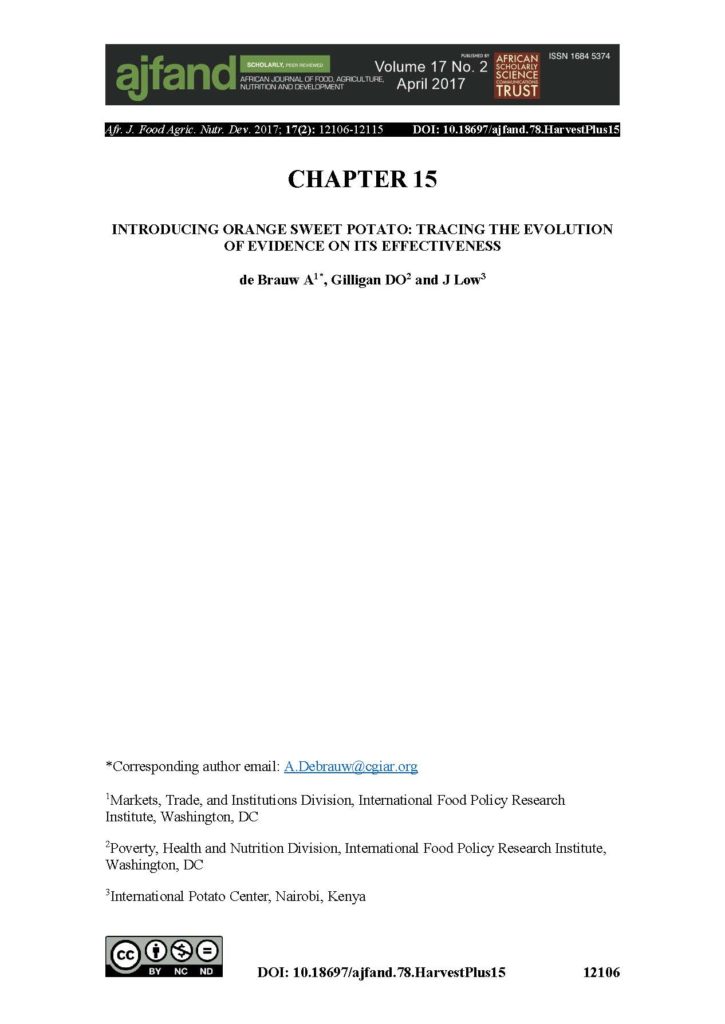The introduction of orange sweet potato (OSP), rich in vitamin A, can have important and lasting impacts on reducing vitamin A deficiency among smallholder farmers in the developing world. In this paper, we describe the evolution of evidence about the effectiveness of disseminating OSP to smallholder farmers on vitamin A deficiency. We trace projects from a small trial in 10 villages in western Kenya through the Reaching End Users program in Mozambique and Uganda that reached thousands of households in both countries, while demonstrating that households receiving integrated programs teaching them to grow OSP and the nutritional benefits of vitamin A had notable impacts on the probability of vitamin A deficiency and on biological markers for vitamin A in women of child-bearing age and young children, relative to members of households not selected for participation. The evidence generated through research has played an important role in efforts to disseminate the crop more widely, and future evaluations will help build understanding about how OSP can be combined with other interventions, such as health visits or disseminating additional biofortified foods.
Introducing orange sweet potato: Tracing the evolution of evidence on its effectiveness
Citation: Brauw, A.; Gilligan, D.O.; Low, J.W. 2017. Introducing orange sweet potato: Tracing the evolution of evidence on its effectiveness. African Journal of Food, Agriculture, Nutrition and Development. ISSN 1684-5374. 17(2):12106-12115.
2018-04-03
BIOFORTIFICATION, SWEETPOTATO AGRI-FOOD SYSTEMS, SWEETPOTATOES
Eastern Africa, Southern Africa
Kenya, Mozambique, Uganda
journal_article

